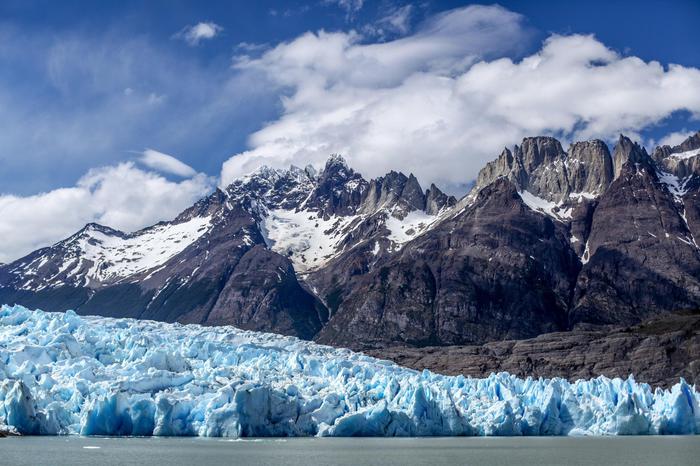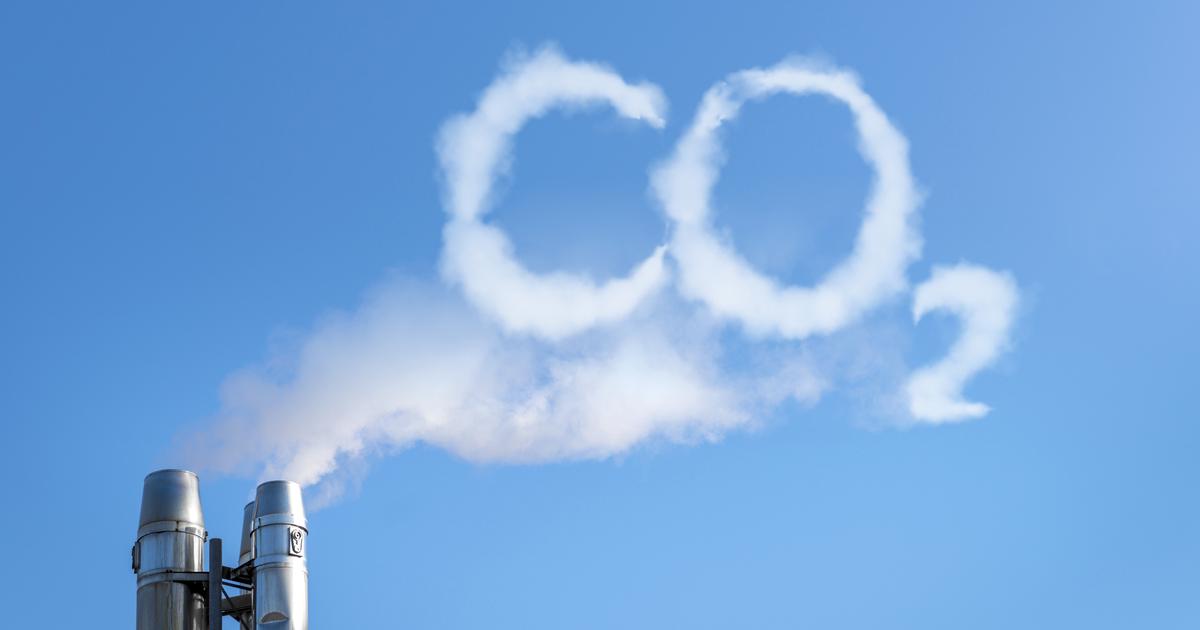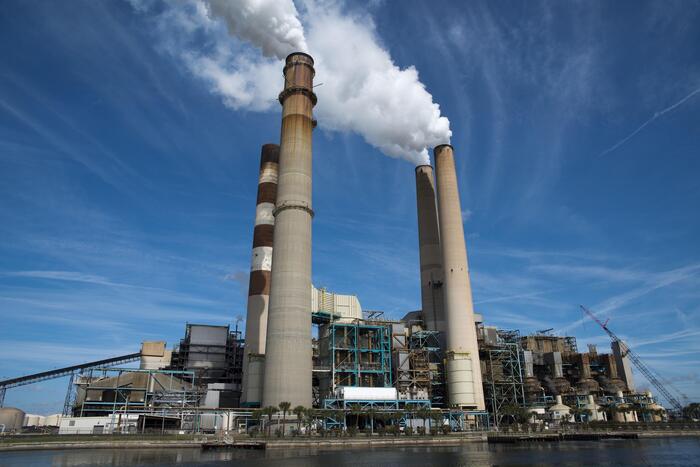In 2019, atmospheric CO2 concentrations were the highest in the last 2 million years and those of the main greenhouse gases (methane and nitrogen dioxide) the highest in the last 800,000 years; over the past 50 years, the Earth's temperature has grown at a rate that is unmatched in the past 2,000 years; mean sea level rise has grown at a rate not seen in the past 3,000 years.
It is the latest alarm launched by the intergovernmental group of climate change scientists (IPCC) and contained in the first of three volumes - approved by 195 UN countries and released today - of the Sixth Assessment Report which will be published in 2022.
Scholars they also prepared a
summary for policy makers
with the most important concepts.
The latest climate report "Climate Change 2021 - The Physical-Scientific Bases"
, "must ring a death knell for coal and fossil fuels, before they destroy our planet" said UN Secretary General Antonio Guterres commenting the IPCC report. Without immediate deep cuts in emissions, the global warming target of no more than 1.5 degrees Celsius "will quickly be out of reach," Guterres added. "Today's Report is a red code for humanity. The alarm bells are deafening and the evidence is irrefutable:greenhouse gas emissions from burning fossil fuels and deforestation are choking our planet and putting billions of people at immediate risk, "Guterres noted.
The scholars, including three Italians from the CNR, affirm that climate change affects every area of the Earth and the entire climate system and warn that strong and constant reductions in CO2 emissions and other greenhouse gases are still possible and capable of limiting the disasters caused by climate change that we are witnessing in some parts of the world. The call is once again the drastic and immediate cut of greenhouse gases to lower the fever of the planet, in particular of the CO2 that remains in the atmosphere for hundreds of years. During the lockdowns caused by the pandemic, in fact, despite the global reduction of 7% of carbon dioxide, there was no appreciable effect on the Earth's temperature.
The continuous rise in sea level is one of the phenomena of climate change already underway, "irreversible in hundreds or thousands of years", say the scientists of the IPCC Working Group 1 in the report "Climate change 2021 - The physical basis- scientific ", the first of the three parts of the Sixth Assessment Report which will be completed in 2022. Coastal areas are expected to continue to rise in sea level throughout the 21st century which could lead to more frequent and severe flooding and erosion of the coasts. Extreme sea-level events that previously occurred once every 100 years could occur every year by the end of this century, scientists warn.
The report speaks of a warming that is proceeding very fast and provides new estimates on the possibilities of exceeding the global warming level of 1.5 degrees Celsius in the coming decades. Unless there are immediate, rapid and large-scale reductions in greenhouse gas emissions, limiting warming to around 1.5 or even 2 degrees Celsius will be an out-of-reach goal. The study shows that greenhouse gas emissions from human activities are responsible for about 1.1 degrees of warming over the period 1850-1900. On average over the next 20 years, global temperatures are expected to reach or exceed 1.5 degrees of warming.
"This report is an objective confirmation," said the co-chair of Working Group I of the IPCC, Valérie Masson-Delmotte. "We now have a much clearer picture of the past, present and future climate, which is essential to understand where we are headed, what can be done and how we can prepare." With 1.5 of global warming, an increase in the number of heat waves, longer warm seasons and shorter cold seasons is expected. With global warming of 2 degrees, extremes of heat would more often reach critical tolerances for agriculture and health. Experts note that climate change affects every area of the Earth and the entire climate system. However, they warn,strong and constant reductions in CO2 and other greenhouse gas emissions would limit climate change.
During the lockdowns due to the pandemic, as mentioned, the emissions of atmospheric pollutants and greenhouse gases were reduced in a very short time, but "while the reduction in polluting emissions led to a temporary improvement in air quality at a global level , the 7% reduction in global CO2 emissions, an enormous reduction never experienced in past decades, has produced no effect on the concentration of CO2 in the atmosphere and, consequently, no appreciable effect on the planet's temperature ". Thus the IPCC experts explaining that "while the reduction of the emissions of the main pollutants, which remain in the atmosphere for a few days or, at most, for a few months,it has a rapid effect on their concentration with a considerable benefit on human health and on the environment in general, on the contrary, to combat global warming, reductions in the concentration of Co2, which remains in the atmosphere for hundreds of years, and of other gases are necessary greenhouse that are sustained over time and of large entity until complete decarbonization ".
All the most important indicators of the components of the climate system (atmosphere, oceans, ice) are changing at a speed never seen in the last centuries and millennia, say the scientists - among them three Italian researchers from the Institute of Atmospheric Sciences and climate of the National Research Council - recalling that anthropogenic emissions reached concentrations of 410 parts per million for CO2 and 1,866 parts per billion for methane in 2019. The global average temperature of the planet in the decade 2011-2020 was 1.09 degrees Celsius higher than that of the period 1850-1900 with a more accentuated warming on the land masses than in the ocean. The major part of global warming is caused by greenhouse gas emissions from human activities,reiterates Working group I which evaluates the new scientific knowledge that has emerged compared to the previous report of 2014. In the coming decades, experts say, an increase in climate change is expected in all regions. For cities, some aspects of climate change can be amplified. These include heat waves, floods due to heavy rainfall and rising sea levels in coastal cities.sea level rise in coastal cities.sea level rise in coastal cities.
"The new IPCC report contains no real surprises. It confirms what we already know from thousands of previous studies and reports: that we are in an emergency situation." So Greta Thunberg on Instagram
adding that "it's a solid (but cautious) summary of the best science currently available". "It does not tell us what to do - continues the young activist with millions of followers around the world - It is up to us to be courageous and make decisions based on the scientific evidence provided in these reports. We can still avoid the worst consequences, but not if we continue as we do today, and not without treating the crisis as a crisis ".







